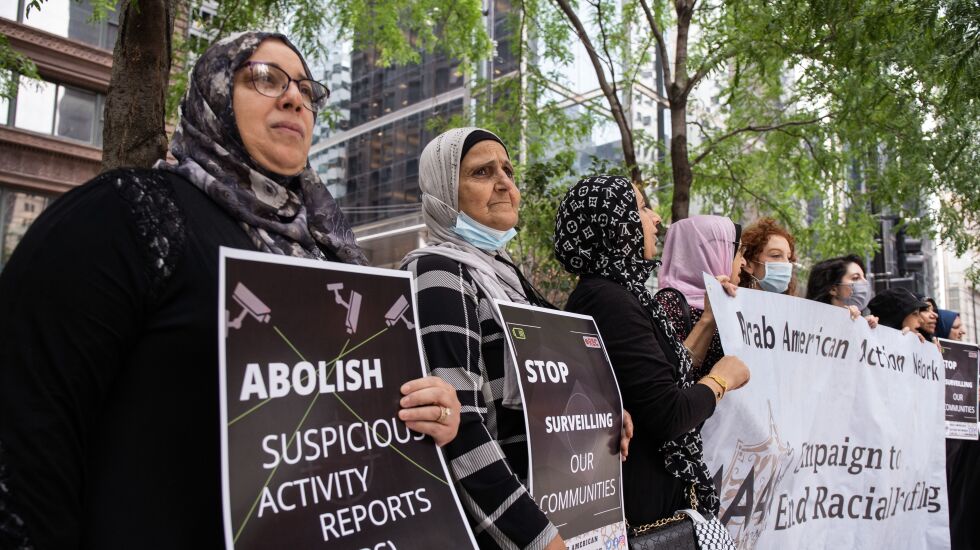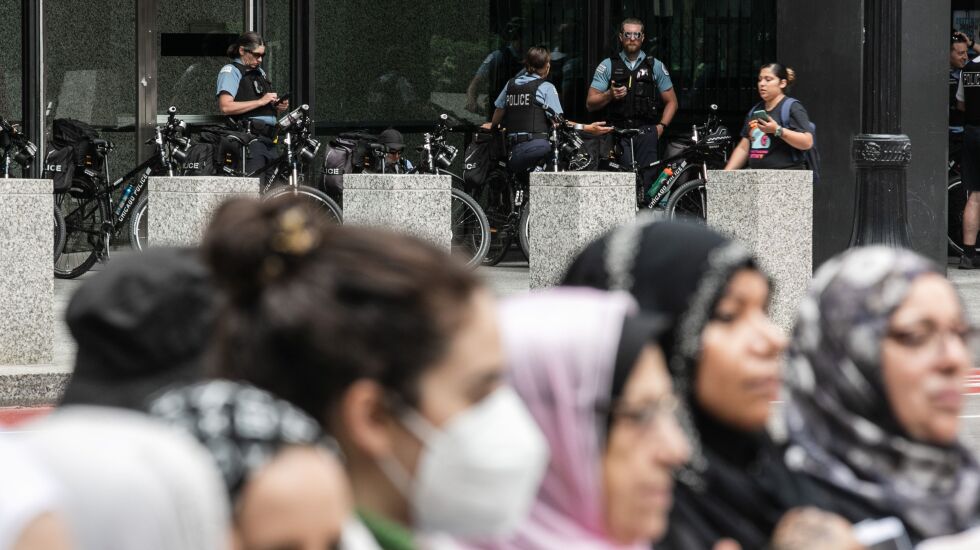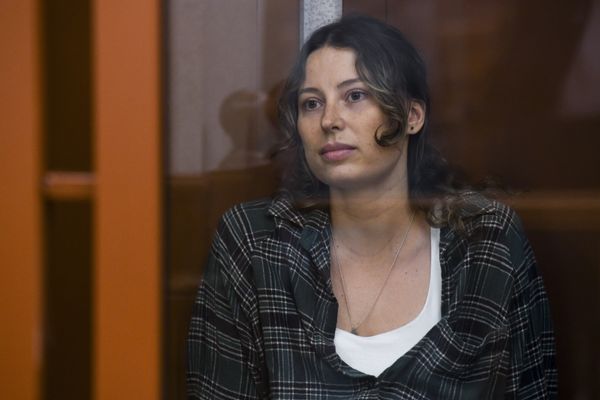
The Arab American Action Network and other Chicago community organizations are calling for law enforcement to stop using a type of report they say leads to racial profiling against Muslims, and people of Arab or of Middle Eastern descent.
The groups published a analysis in May that examined 235 so-called “suspicious activity reports,” that were filed between 2016 to 2020 through the Illinois State Police’s Statewide Terrorism Intelligence Center or the Chicago Police Department’s Crime Prevention Information Center.
The Arab American Action Network along with the Policing in Chicago Research Group at the University of Illinois-Chicago obtained the reports after filing a Freedom of Information Act request and later sued for the records, they said.
The Arab American Action Network held a news conference Friday in the Loop to announce their findings and called for a town hall meeting between community leaders and law enforcement officials.
“We will fight day and night to protect our rights,” a group of about a dozen people chanted at Federal Plaza.
The groups alleged the “suspicious activity reports” have become a way to racially profile people engaged in everyday activities like taking photos or speaking Arabic.
“These reports show what every person in our communities knows all too well — that our community continues to be treated with suspicion,” said Muhammad Sankari, who worked on the report.
The group’s analysis found that in nearly 54% of the reports kept by the Crime Prevention Information Center, the suspicious person was identified as either Arab, Muslim, Middle Eastern or described as having olive skin tone.
In the reports from the statewide center, 49% of the people who were reported as suspicious were Arab, Muslim, Middle Eastern or described as having olive skin.
Illinois State Police said Friday they hadn’t reviewed the report and could not comment on the analysis. The agency said that the center where the reports are reviewed was created in the aftermath of the terrorist attacks on Sept. 11, 2001, as a way for law enforcement to identify and prevent terrorist attacks.
“STIC adheres to federal and state laws regarding privacy and civil liberties. The STIC accepts suspicious activity reports from law enforcement and vetted public safety partners only,” state police said.
Chicago police did not immediately respond to a request for comment.

The advocacy groups found that one of the reports they analyzed was filed after a 16-year-old high school student told his guidance counselor he was upset that he might never again see his grandparents, who were political Islamists in Syria. The school reported the teen and his father to the statewide center, according to the report.
Sangi Ravichandran, a PhD student at UIC and researcher on the project, said the groups also noticed the suspicious activity reports were used in instances when people were critical of foreign policies. Some of the reports they received were heavily redacted and they weren’t able to make contact with individuals who were at the center of the suspicious activity report.
In one instance in 2019, a college student was reported as a suspicious person after his backpack was lost and an officer found images related to a boycott of products from Israel and another image critiquing groups in Syria, according to the report.
Maysoon Abu Gharbieh, coordinator of AAAN’s Arab Women’s Committee, said it feels like there is a target on the back of her community.
“As a mother, I fear for my children living at a time when they can be targeted for speaking Arabic, for joking around with their friends or even for taking photos with their friends and family downtown,” Abu Gharbieh said.
The groups are pushing for the closure of the Statewide Terrorism Intelligence Center and the Crime Prevention and Information Center, an end to all countering violent extremism programs, community control of Chicago police and a path to citizenship for immigrants.
Elvia Malagón’s reporting on social justice and income inequality is made possible by a grant from The Chicago Community Trust.







